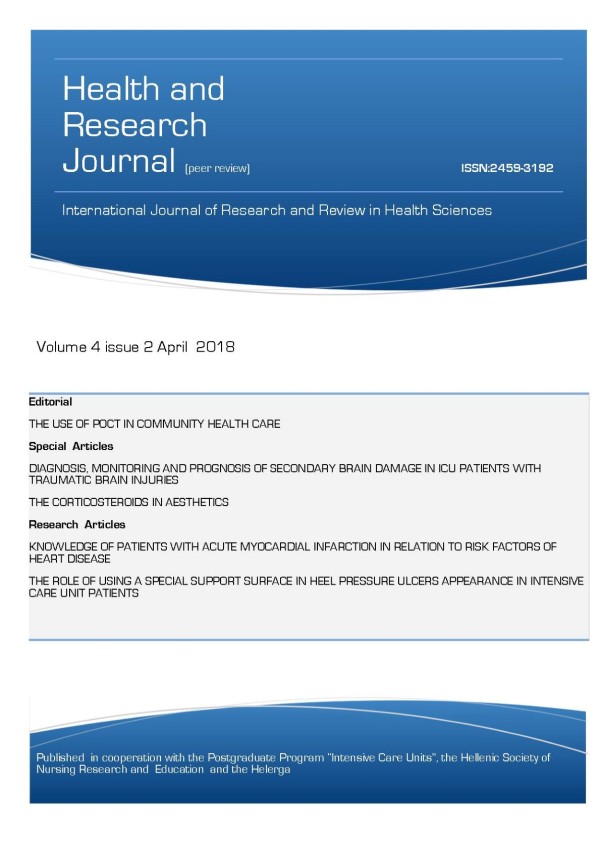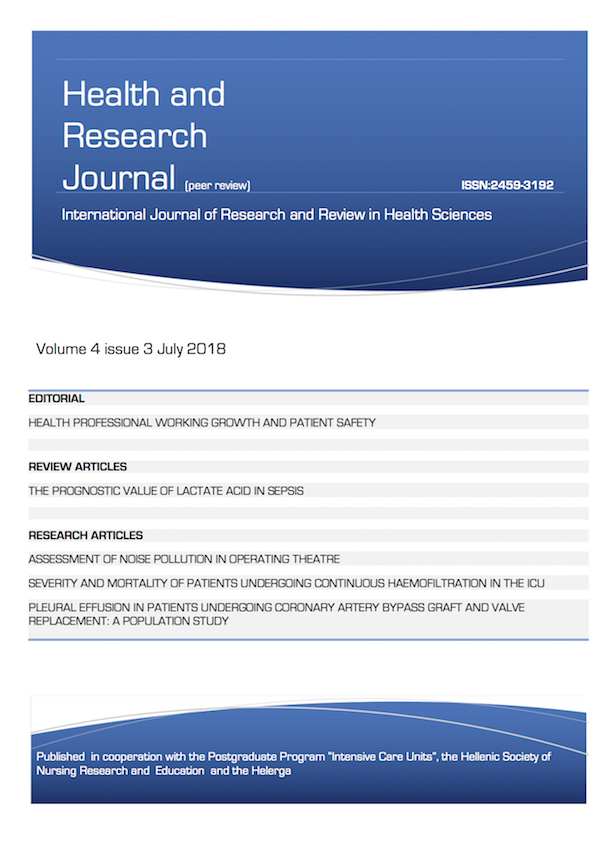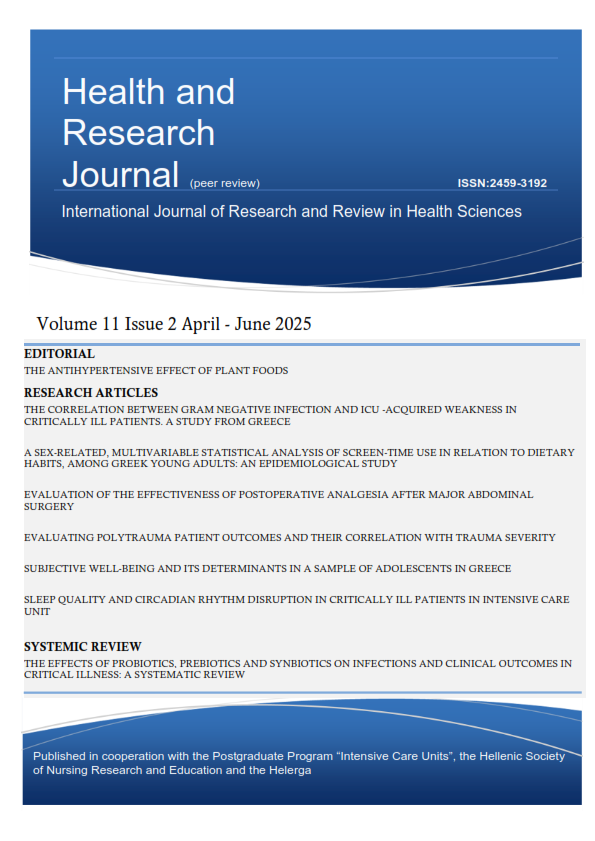Effectiveness of artificial nutrition in patients with acute pancreatitis

Abstract
Introduction: Early application of enteral nutrition programme has begun to gain ground in recent years in the treatment of severe acute pancreatitis by putting into question the effectiveness of parenteral nutrition.
Aim: The purpose of the present review was to investigate the effectiveness of artificial nutrition in curbing of complications and improvement of patients with severe acute pancreatitis.
Material and Method: There was a research in electronic databases Scopus, Pubmed, The Cochrane Library and Scopemed for the time period 2010-2015. The key words selected for the data search were “acute pancreatitis”, “nutrition”, “feeding” and “clinical trials”. For the preparation of the review, 14 research studies were used.
Results: The superiority of enteral feeding versus parenteral is documented by the reduction of inflammatory mediators and septic complications while early enteral nutrition (within 48 hours) is associated with lower rates of complications, multiple-organ dysfunction and mortality. Patients undergoing enteral nutrition are hospitalized for a shorter period of time compared to those undergoing parenteral nutrition. The duration of hospitalization in the ICU is even shorter for patients who also receive immunonutrition which helps to reduce bacterial translocation, systemic inflammatory response and complications.
Conclusions: The granting of early enteral nutrition with or without immunonutrition contributes decisively to reverse the sharp deterioration of patients with severe acute pancreatitis. Early enteral nutrition is associated with fewer complications compared to total parenteral nutrition.
Article Details
- How to Cite
-
Skontzou, K., Vassilopoulos, G., Kotanidou, A., & Marvaki, C. (2017). Effectiveness of artificial nutrition in patients with acute pancreatitis. Health & Research Journal, 3(2), 94–103. https://doi.org/10.12681/healthresj.21174
- Section
- Reviews
Copyright notice:
Authors retain copyright of their work and grant the Health and Research Journal the right of first publication.
License:
Articles are published under the Creative Commons Attribution 4.0 International License (CC BY 4.0). This license permits use, sharing, adaptation, distribution, and reproduction in any medium or format, including for commercial purposes, provided that appropriate credit is given to the author(s) and the original publication in this journal, a link to the license is provided, and any changes are indicated.
Attribution requirement:
Any reuse must include the article citation and DOI (where available), and indicate if changes were made.





